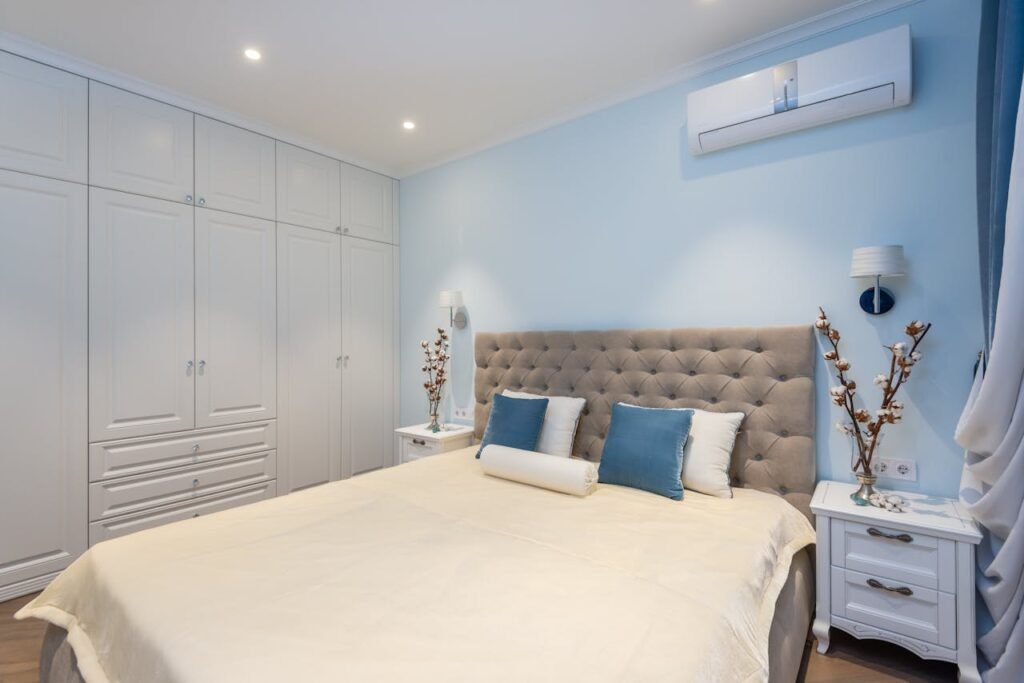Table of Contents
- Introduction to AC Tune-Ups
- What Is an AC Tune-Up?
- Why Schedule Regular Maintenance?
- Cost Savings Through Efficiency
- Prolonging Your AC’s Lifespan
- Better Indoor Air Quality
- Reducing the Risk of Major Breakdowns
- Environmental Impact
Introduction to AC Tune-Ups
As summer approaches, homeowners start to rely heavily on their air conditioning (AC) units to keep their homes cool and comfortable. One of the best ways to ensure your AC system is ready for the heat is by scheduling regular air conditioning tune up in Tulsa OK. These not only help your unit run efficiently but also extend its life and improve indoor air quality. Given the vital role that AC units play in maintaining a comfortable living environment, investing in regular maintenance can provide significant benefits. Regularly tuned AC units run smoother, break down less often, and use less energy, making them both cost-effective and reliable.
What Is an AC Tune-Up?
An AC tune-up constitutes a meticulous examination and maintenance procedure carried out by a skilled HVAC technician. This entails inspecting various elements of your air conditioning unit, including the thermostat, refrigerant levels, electrical connections, and overall system calibration. A thorough tune-up also involves cleaning or replacing air filters, scrutinizing ductwork for leaks, and inspecting the outdoor unit for any potential obstructions. Regular tune-ups can detect minor issues before they escalate into major problems, ultimately saving you both time and money in the long term. Moreover, they ensure that your system operates at peak efficiency, thereby significantly enhancing your home’s comfort.
Why Schedule Regular Maintenance?
It’s essential to schedule regular maintenance for your AC system for various reasons. A well-maintained system is more energy-efficient, has a longer lifespan, and provides better air quality in your home. HVAC professionals recommend at least one annual tune-up, preferably before the summer season kicks in. Regular maintenance can also improve the system’s cooling capacity, ensuring that your home remains consistently comfortable even during the hottest days. Moreover, a well-serviced AC unit operates more quietly, reducing overall noise pollution in your living space. Committing to regular maintenance can lead to significant savings on your energy bills and potentially prevent expensive repairs.
Cost Savings Through Efficiency
One of the key advantages of routine AC tune-ups lies in the potential for saving costs. Preventive maintenance ensures that your system is operating at optimal efficiency, which can lead to reduced energy bills. Additionally, catching minor issues early can prevent expensive repairs or even the need for a full system replacement later on. According to Energy.gov, a well-maintained air conditioning system can lower energy consumption by up to 15%. This translates to significant savings over time, allowing you to allocate your resources more effectively. Moreover, efficient AC units reduce wear and tear on components, further extending the lifespan of your appliance and minimizing the likelihood of emergencies.
Prolonging Your AC’s Lifespan
Just like any other significant appliance in your home, your air conditioning unit will last longer with regular care and maintenance. An AC tune-up can identify and rectify minor issues that, if left unattended, could lead to more severe damage over time. This proactive approach not only extends the life of your unit but also offers homeowners peace of mind. Routine maintenance ensures that all components remain in optimal condition, thereby lessening the necessity for frequent replacements. Considering the high cost of central air conditioning systems, extending the lifespan of your unit through regular tune-ups is a financially sound decision. Additionally, a longer lifespan for your AC means fewer disruptions and more consistent comfort for your household.
Better Indoor Air Quality
Indoor air quality often goes unnoticed, yet it’s crucial for home comfort. Your air conditioning system can collect dirt, dust, and other pollutants, spreading them throughout your living space. Regular tune-ups include cleaning and replacing air filters, making sure that the air you and your family breathe is clean and healthy. The Environmental Protection Agency (EPA) highlights the importance of maintaining your HVAC system to improve indoor air quality. A clean system can also reduce allergens and other airborne irritants that may cause respiratory issues. Moreover, improved air quality can have positive effects on overall well-being, productivity, and even sleep quality, making regular maintenance a wise investment in your family’s health.
Reducing the Risk of Major Breakdowns
No one wants their AC unit to break down in the middle of a sweltering summer day. Regular tune-ups significantly reduce the risk of unexpected breakdowns. By identifying and addressing potential problems early, you can avoid the discomfort and cost associated with emergency repairs. In addition, a well-maintained AC system is less likely to experience severe issues that require prolonged downtime, ensuring that your home remains comfortable all year round. Preventive maintenance is far less expensive and inconvenient compared to dealing with major system failures. This proactive approach not only saves you money but also offers considerable convenience and peace of mind.
Environmental Impact
Efficiently running AC units not only save money but also have a positive impact on the environment. Reduced energy consumption results in a diminished carbon footprint. By ensuring your air conditioning system is in top shape, you can contribute to energy conservation and environmental preservation. Reducing your home’s energy usage can also lessen your dependence on non-renewable energy sources, further benefiting the environment. Additionally, routine maintenance helps to ensure that refrigerants used in your AC system are properly managed, preventing leaks that could harm the ozone layer. In this way, regular AC tune-ups foster a more sustainable and eco-friendly home environment.

